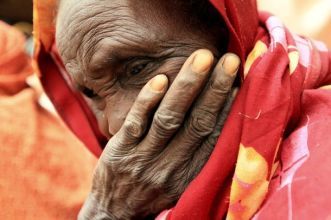Sudan still mulling over resettlement of Darfur IDPs – presidential adviser
September 26, 2010 (KHARTOUM) — Sudan is still considering practical steps to implement its new strategy to end Darfur conflict particularly the issue of return of Internally Displaced Person (IDPs) to their villages and the compensations they demand, said Ghazi Salah Eddin who is in charge of Darfur file.

The return of IDPs and their compensation was one of the major issues that led to the failure of Abuja peace talks in 2006 and the refusal of two major rebel groups to ink the peace agreement signed only by the former rebel Minni Minnawi.
“The next sub-strategy that will be developed will be on the sensitive issue of the IDPs, their needs and their return to their original homes,” said Ghazi in an interview with the Ottawa based Subsahara Centre extended to Sudan Tribune.
The presidential adviser underlined that his government does not want to “rush this pillar of the Strategy and is conducting wide-based consultations”. He further stressed that IDPs inspirations and the diversity in their needs are considered and evaluated.
“All the delicate issues needing criteria such as ‘voluntary return’, ‘original homes’ ‘what compensation’, best options and interests of the groups of IDPs shall be considered and properly weighted into the sub-strategy,” he said.
Darfur rebel groups including the Liberation and Justice Movement (LJM) which is conducting peace talks with the government criticised the new strategy. The Justice and Equality Movement (JEM) said the government aims to exclude the rebel groups from the peace process, while the Sudan Liberation Movement led by Abdel Wahid Al-Nur (SLM-AW) decried the new policy saying Khartoum intends to continue “genocide” against civilians that started since 2003.
In accordance with the adopted strategy, the peace talks with the rebel groups in Doha are part of the new strategy to end the conflict. Nonetheless with this new plan the presidential adviser said in the interview that the government now is “setting the agenda and leading the initiative”. The center of gravity of the process is located inside Sudan, according to Ghazi in similar statements made last month.
In addition to the domestication of the conflict Ghazi insisted that “Mediation and Doha were told in clear terms that there must be a Political Settlement before the end of the year. Otherwise there may be undesirable mess if the political settlement is not reached by the due date of the referendum”.
Peace talks in Doha are scheduled to resume on September 29 between the Sudanese government and rebel LJM while the Joint Chief Mediator Djibril Bassole exerts efforts to bring JEM and SLM-AW to the negotiating table.
The mediation said intending to submit a draft document to all the parties without exception to serve as basis for a comprehensive peace agreement.
On September 24, During a special meeting on Sudan held on the sidelines of the 65th session of the United Nations General Assembly in New York, US president Barak Obama said peace in Darfur should be comprehensive and inclusive.
He further added rebel groups have to join the talks. “Those who truly want it must join the give-and-take at the negotiating table,” he said.
Ghazi said the new strategy is supported by the US special envoy to Sudan Scott Gration. He also disclosed that the European Union countries look “like distant from the Strategy”. The responsible of Darfur file however added that the government started dialogue with Spain and Sweden and will extend it to the whole EU in the near future.
He explained the EU reluctance by its support for the ICC jurisdiction in Darfur crimes.
“The EU’s position on the ICC may be responsible for their caution,” he said.
(ST)
